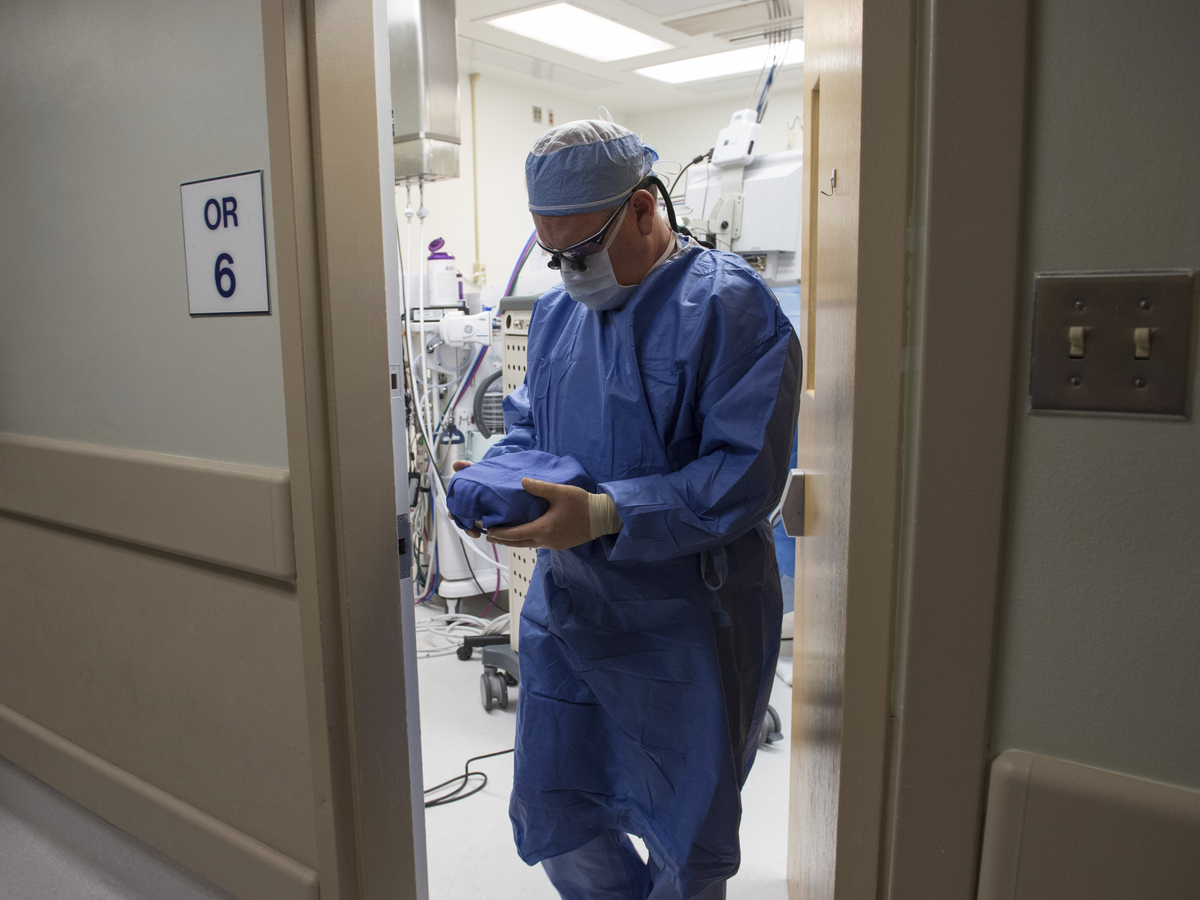Organ Donation Nonprofits Face New Scrutiny Under Trump Administration Rules

Enlarge this image
While waiting for a liver transplant in 2011, 21-year-old Matthew Rosiello (shown here getting catheter help from his mom while he was on the waitlist) was advised by his doctors to relocate from New York to Ohio — where the wait would be shorter. Indeed, in 2012 Rosiello received a liver transplant in Cleveland.
AP Photo/Craig Ruttle
hide caption
toggle caption
AP Photo/Craig Ruttle

Enlarge this image
Transplant surgeon Dr. Matthew Cooper cradles a donated kidney at MedStar Georgetown University Hospital in Washington, D.C., in 2016. Organ procurement is a delicate process, he says, requiring compassion and tact in talking with families after a loved one has died.
Molly Riley / AP
hide caption
toggle caption
Molly Riley / AP
Transplant surgeon Dr. Matthew Cooper cradles a donated kidney at MedStar Georgetown University Hospital in Washington, D.C., in 2016. Organ procurement is a delicate process, he says, requiring compassion and tact in talking with families after a loved one has died.
Molly Riley / AP
For example, earlier in December the New England OPO that stretches from Connecticut to Maine had the case of a 59-year-old who had suffered a fatal bicycle accident. That person’s family signed off on organ donation, and the region’s organ procurement organization considered the kidneys to be in good shape. But they got no takers.
«We made thousands of organ offers and ultimately weren’t able to place those kidneys for transplant, despite … almost 33,000 offers,» says Alexandra Glazier, CEO of New England Donor Services.
Once organs are turned down a few times, she says, other surgeons assume there must be something wrong with them, and also turn them down. A likely reason is that transplant centers have to contend with data assessments, too; they are rated by how many of their patients survive for a year or longer after transplant, among other measurements.
That’s why Glazier questions whether the new rules meant to increase transplants will actually achieve that goal. The revised guidelines focus on organ procurement, but don’t subject surgeons and transplant centers to additional scrutiny of their decisions.
«We know that there is opportunity to do a lot better system-wide,» Glazier says. «But what this requires is the full engagement of ‘the system.’ «
She objects to another part of the new policy, too: Any low-performing OPO that doesn’t improve is subject to being taken over by a high performer. Glazier calls it a «hunger games» scenario that, in her view, could lead to even fewer organ transplants.
It’s easy to point fingers, says Dr. Matthew Cooper. He directs kidney transplantation at Medstar Georgetown in Washington, D.C.
Organ procurement organizations have a delicate job, he says.
«Perhaps it’s not as simple as you think it is,» he says. «It’s not as simple for me as a transplant program to go to a donor family and say «Listen, why aren’t you donating your organs?’ I’d probably be really bad at that.»
And Cooper worries that a punitive approach won’t benefit any of the nonprofits doing the work.
«If we solely focus on one piece,» Cooper says, «I fear we’re going to have more chaos than we’re going to have value.»
This story comes from NPR’s health reporting partnership with Nashville Public Radio and Kaiser Health News.
- organ procurement organization
- trump administration
- organ donation
- organ transplant














Комментарии 0